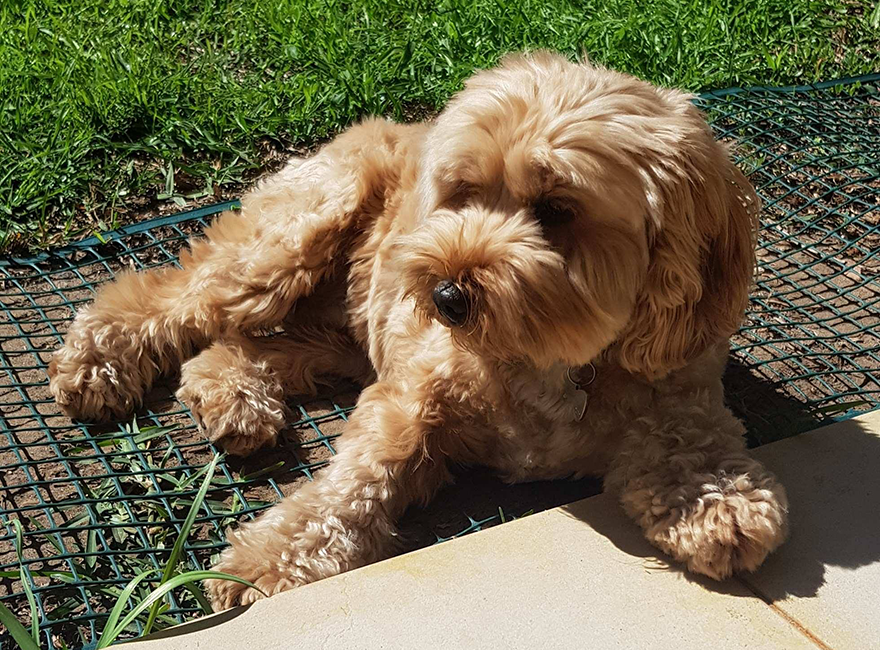
Dog owners warned of deadly bacterial infection

By ALLISON HORE
Dog owners around Sydney’s CBD and Inner West are being warned about an outbreak of a bacterial disease which can be deadly to dogs and is transmittable to humans.
Following a number of fatal cases across inner city suburbs, pet owners are being “urgently encouraged” to speak to their vet about a deadly bacterial disease called leptospirosis.
This year, cases of the disease have been confirmed in Newtown, Balmain, Crows Nest and Paddington. Last year cases were found in Centennial Park and Glebe.
The disease is caused by the Leptospira bacteria found in infected animal urine and animal tissues, especially rats. Dogs can come into contact with the bacteria from water, bedding or food which is contaminated with rat urine or with direct contact with infected rats.
Dr. Kate Adams, veterinarian and owner of Bondi Vet Hospital, told City Hub while other pets, and even humans, can be infected by leptospirosis dogs are at particular risk of getting infected.
Due to the non-specific symptoms of leptospirosis it can be hard to recognise early infection of the disease, Dr. Adams says. She said often by the time the disease has been caught it has already caused “irreversible kidney and liver failure” which often progresses to death.
“The signs of infection are really wide ranging and they’re quite non specific,” she said.
“We tend to see things like dogs being lethargic, maybe they are having some vomiting or diarrhea.”
If the disease is left to progress, dogs with leptospirosis can develop liver disease, kidney disease and bleeding disorders, which are often fatal. Treatment of the disease is also very difficult, in the recent cases of the disease confirmed across Sydney and Melbourne only one dog has survived.
While dog-to-human transmission of the disease is possible, it is rare. The Australian Journal of General Practice estimates one to two-hundred people a year are affected by leptospirosis. Most cases of the disease in humans are a result of exposure during farming work or recreation activities.
With heavy rainfall predicted over the coming weeks there is more risk animals will be exposed to the infection as stagnant water brings out rodents. Dogs may then drink from these puddles which have come into contact with rats.
Prevention and education the best medicine
When the disease is diagnosed it is often too late for treatment. Dr. Adams suggested awareness about and vaccination against the disease are the best measures concerned owners can take.
Dr. Adams said the infection is not necessarily more common now than it was in the past, but vets are better at diagnosing it. She said, in the past, deaths by this infection may have been attributed to poisoning due to the similar effects the disease has on the dogs’ body and the seemingly sudden nature of the onset.
“We’re starting to recognise it more, and that’s probably because owners and vets are a little bit more educated about this disease, so they look for it a lot more,” she said.
“Things that we may not have thought were leptospirosis previously, so things thought to be baiting or something like that, are now being recognised as leptospirosis.”
For those living in or near hotspots such as parks, construction sites and densely populated areas, Dr. Adams says preventative measures are the best course of action for owners.
Dr. Adams suggests that owners consider getting their dog vaccinated for the disease if they live within a five kilometer radius of a confirmed case or near one of the at risk areas. She said a lot of dog owners don’t know that there is the option of getting their dogs vaccinated because it is not included in the regular annual vaccination protocol.
“At the moment the best defence we have against leptospirosis is vaccination,” Dr. Adams explained.
“The vaccine is easy, it’s inexpensive, and it’s at least protective against one of the types of leptospirosis.”
Pet owners who are concerned about leptospirosis should contact their local vet to talk about preventative measures.









